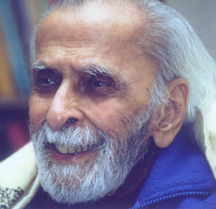
According to the formal investigation and new of Deena Kamel, 'A Language Without Limits', published by the Toronto Star, 'times change, and with them, language'. Thats real, language is always changing and the purpose of this text is to inform us and take note about that, showing the example of that happen (or is happening in Canada: Cultural Syncretism.
 As the text said 'all around the GTA, if you listen carefully, you'll hear English increasingly with flavours from foreign languages'. The problem was that Hinglish, Chinglish and Arabizi were taking place in Canada as a result of the mixture of the different cultures as the Chinese, Hindi and Arabic (Cultural Syncretism). What is the problem with that? Someones as Jack Chambers, professor of sociolinguistics at the University of Toronto established that is somethin good, 'they think it is a sign of incompetence when it is really a sign of resiliency and creativity' as we can see in the case of Pepsi and Coke that they made creative slogan to attrack the attention of people in India. But also there are a lot of people, mainly the young people, who thought that is a huge problem, ' it is disliked by some native English speakers, but not by language experts'.
As the text said 'all around the GTA, if you listen carefully, you'll hear English increasingly with flavours from foreign languages'. The problem was that Hinglish, Chinglish and Arabizi were taking place in Canada as a result of the mixture of the different cultures as the Chinese, Hindi and Arabic (Cultural Syncretism). What is the problem with that? Someones as Jack Chambers, professor of sociolinguistics at the University of Toronto established that is somethin good, 'they think it is a sign of incompetence when it is really a sign of resiliency and creativity' as we can see in the case of Pepsi and Coke that they made creative slogan to attrack the attention of people in India. But also there are a lot of people, mainly the young people, who thought that is a huge problem, ' it is disliked by some native English speakers, but not by language experts'.
During the text its easy to recognize the serious tone that the author use to communicate what is happening to people that wants to be informated, because as I said before, people was concerned about this; 'people sometimes find it embarassing'. Globalization seems to be the main fact that affect English, helped with the Social Networks that make easier to share this language variation; 'Hinglish, a lively hybrid spread quickly by the Internet and satellite channels, is the language of globalization'.

As we move in the text, we can see another great question that the author try to make in a hind way: do people from other countries or other cultures would learn English or make English there first language? And the question was given by the Indean writter, Raja Rao; 'We cannot write like the English. We should not. We cannot write only as Indians. Our method of expresion therefore has to be a dialect which will some day...' In other words, people can´t say no to their origins or culture, because culture says who you are, its your identity, so Indian people will be always Indian, as I will be always a Chilean.
Finally i will like repeat that langauge is in a constant change, and the text say it clearly. English (the Universal Language) will be always changing and getting more derivatives, because 'the English language has a heard start over lots of other languages', and will remain for long time.









